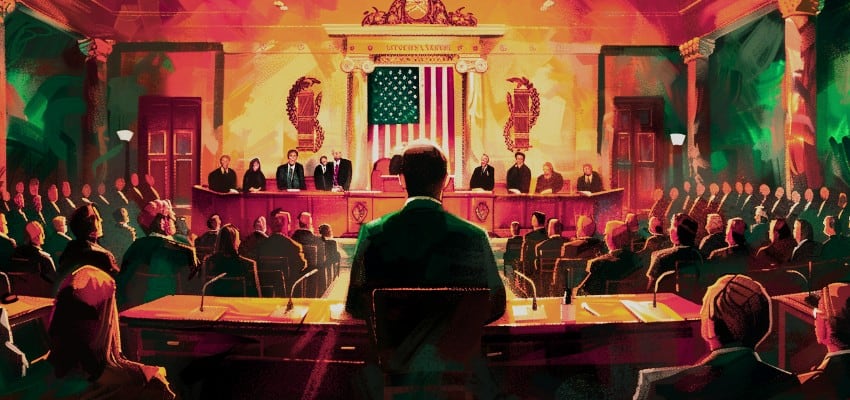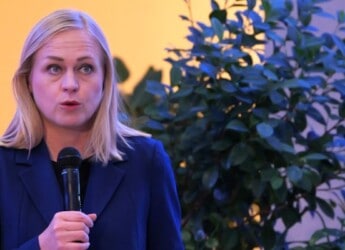Editor’s Note: In today’s digital age, cybersecurity is a cornerstone of national security and trust in government operations. Recent hearings before the House Homeland Security Committee have put Microsoft at the center of intense scrutiny following a series of significant cybersecurity breaches. These incidents have exposed vulnerabilities in federal email systems, prompting critical discussions about the tech giant’s role and responsibility in safeguarding sensitive information. This article delves into the details of the committee’s investigation, Microsoft’s response, and the broader implications for cybersecurity practices among major federal vendors. For professionals in cybersecurity, information governance, and eDiscovery, understanding the dynamics of these high-profile breaches and the responses they trigger is crucial for enhancing organizational security frameworks and fostering a culture of accountability.
Content Assessment: Microsoft Under Fire: Lawmakers Grill Tech Giant on Preventable Cybersecurity Failures
Information - 92%
Insight - 90%
Relevance - 92%
Objectivity - 91%
Authority - 89%
91%
Excellent
A short percentage-based assessment of the qualitative benefit expressed as a percentage of positive reception of the recent article from ComplexDiscovery OÜ titled, "Microsoft Under Fire: Lawmakers Grill Tech Giant on Preventable Cybersecurity Failures."
Industry News – Cybersecurity Beat
Microsoft Under Fire: Lawmakers Grill Tech Giant on Preventable Cybersecurity Failures
ComplexDiscovery Staff
Microsoft President Brad Smith faced sharp scrutiny from the House Homeland Security Committee on Thursday regarding a series of high-profile cybersecurity breaches that targeted federal email systems. The committee’s questioning came on the heels of a critical report by the U.S. Cyber Safety Review Board (CSRB), which attributed these breaches to a series of preventable errors and a faltering security culture within Microsoft.
The recent hearing focused on how Chinese hackers impersonated Microsoft’s customers, including 22 organizations like the U.S. Departments of State and Commerce. These intrusions led to the compromise of numerous email accounts, including those of Commerce Secretary Gina Raimondo and U.S. Ambassador to China, R. Nicholas Burns. Committee Chair Mark Green (R-Tenn.) highlighted the critical nature of Microsoft’s role in government operations, stating, “It is now Congress’s responsibility to examine Microsoft’s response to this report. We must restore the trust of the American people, who depend upon Microsoft products every day.”
In his testimony, Smith acknowledged the company’s failures and expressed Microsoft’s commitment to improving its security measures. “We acknowledge that we can and must do better, and we apologize and express our deepest regrets to those who have been impacted,” Smith said. He detailed a robust initiative to enhance Microsoft’s cybersecurity, noting the addition of 1,600 security engineers this fiscal year, with plans to hire an additional 800 next year.
The CSRB report was particularly scathing. It emphasized that Microsoft’s operational decisions had led to a “corporate culture that deprioritized enterprise security investments and rigorous risk management,” describing the company’s security culture as “inadequate and requiring a comprehensive overhaul.” The report underscored the necessity for federal government vendors, like Microsoft, to adopt sound security practices consistently.
Lawmakers across the aisle were vociferous in their criticism. Ranking Member Bennie Thompson (D-Miss.) stressed the importance of holding Microsoft accountable, despite acknowledging its cooperation in the investigation. “It is incumbent on this committee to hold Microsoft, one of the federal government’s most prominent IT vendors and security partners, accountable for the findings and recommendations in the report,” said Thompson.
Furthermore, Smith addressed concerns regarding Microsoft’s new Windows feature, Recall, which takes screenshots of most activities on a personal computer. Security professionals warned that this feature could be exploited by hackers, despite Microsoft’s assurances that the data would remain encrypted. Smith informed the committee that the feature would not ship as enabled by default and would require more authentication by users to activate.
The hearing also touched on other significant breaches, including the SolarWinds hack of 2020, attributed to Russian state-sponsored actors, and a January attack on Microsoft’s corporate email systems by Midnight Blizzard, another Russian-backed group. The latter’s hack was revealed in March, with evidence suggesting that the attackers could access Microsoft’s source code repositories, although no customer-facing systems were reportedly compromised.
Smith’s testimony unveiled new measures, including a proposal for evaluating employees’ cybersecurity contributions in their performance reviews, which would influence compensation. This initiative is part of a broader effort to foster a stronger cybersecurity culture within Microsoft.
Microsoft has been under intense scrutiny, not just from lawmakers but also from security industry peers and competitors. Organizations like NetChoice have criticized the heavy reliance on Microsoft’s technology, suggesting that the government diversify its vendors to mitigate risks. In response, Smith argued that the company’s operations in China, which account for about 1.4% of its sales, serve American interests by protecting trade secrets and providing insights into global cyber threats.
In his concluding remarks, Smith reiterated Microsoft’s dedication to earning and maintaining the government’s and public’s trust. “We are making the changes we need to make, learning the lessons we need to learn, holding ourselves accountable. We will be transparent. I hope people will look at what we’ve done and say this is something they want to do with us,” he stated.
The committee’s deliberations underscore the critical need for enhanced cybersecurity protocols. As the digital landscape becomes increasingly complex, the relationship between major tech vendors and the government continues to necessitate rigorous oversight and accountability.
News Sources
- Lawmakers Question Brad Smith About Microsoft’s China Business
- US lawmakers grill Microsoft president over China ties, hacks
- Microsoft ‘accepts responsibility’ for cybersecurity failures, top exec says
- Microsoft seeks to ease government scrutiny in House hot seat
- Congress grills Microsoft boss Brad Smith after ‘cascade’ of security errors
Assisted by GAI and LLM Technologies
Additional Reading
- Alarming Insurance Gaps and Soaring Breach Rates Call for a United Front in Cybersecurity
- Ambient Light Sensors to Malware Threats: MIT Unveils Smartphone Privacy Risks Amid Market Turbulence
Source: ComplexDiscovery OÜ



























